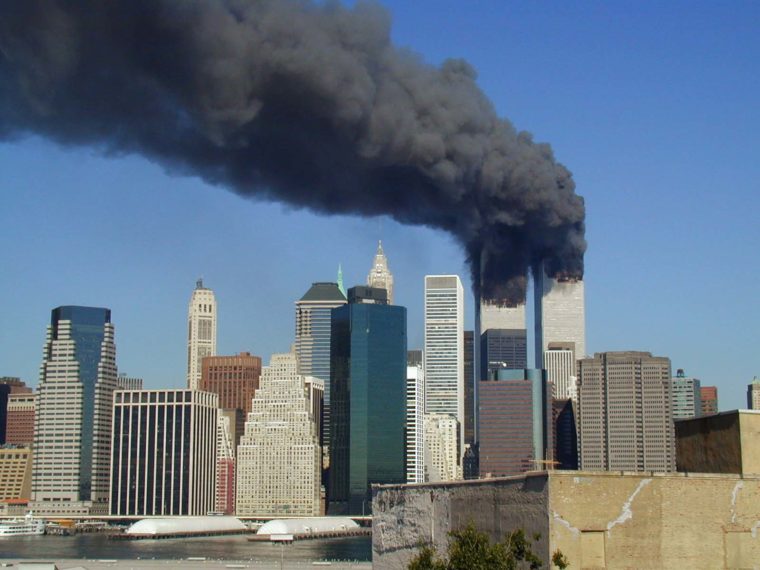I remember vividly how weird a morning it was on September 11, 2001. At the time, I was living in Nashville, heading to work at a downtown law firm. I learned that year why I didn’t want to be a lawyer. That morning was unusual, because I didn’t usually turn on the radio until I got in the car on my way in to work. That morning I did, though. I couldn’t believe what I was hearing. It was something confusing about New York City.
Never before had I felt America stand still. It was eerie. Not knowing yet quite what was going on, I went to work, still feeling concerned and confused.
I grew up in the New York City area. People there were and are friends of mine. They’re not just American friends. The United Nations in the U.S. is centered in New York, not D.C. So diplomats from all over the world are there and were threatened too. New York City is also the landing pad for so many people who come to the United States, furthermore. It is a place that for so long was unique. It is such an icon for the country, as we are not a land of one ethnicity, race, or religion. America is an idea about how different people who want freedom can live together and govern themselves.
I don’t want to be too romantic. I live in a town that was the last battleground of the Civil War, resisting the integration of my university. People around this state were lynched in large numbers for the sake, explicitly stated, of white supremacy. Still, New York City is a symbol. It is a place people want to be. The best of so many things are or go there. It is a port. It has been an entryway into freedom for so many people. My own mother came to the U.S. through New York. It wasn’t to flee the tyranny of the French, of course, but even I am just a first generation American — on my mother’s side, at least.
One of my early memories from growing up was visiting the Twin Towers when my grandparents had come to visit from Iowa. There were a few generations of Americans in my family on Dad’s side. To many, the towers symbolized trade, given their name and purpose. They were also seen negatively by others as a symbol of American expansion around the world, and of modernism that radical conservatives rejected. A “radical conservative” sounds like an oxymoron, like an impossibility. If only it were.
I wanted to take a moment to think about that day, to think about all the people who were killed. I want to think about all the people who gave their lives trying to save others. I also want to remind people on the Right and on the Left of the highest point that I admire most in President George W. Bush’s presidency. When people think about 9/11 and it’s aftermath, many people are still furious at Bush. I am not talking about any of those causes or conflicts. I am no defender of torture and I find base the attempt to deny some of what Americans did as something other than torture years later.
At the same time, we need to notice not only when people do wrong, but also when there are shining moments that get covered up, justifiably or not. Attending to high points reminds us what to strive for. The New York Times reported on Bush’s speech at a mosque a few days after September 11th, calling his words “eloquent.” Here’s their piece on Bush’s speech. If you haven’t read it, here is the transcript of Bush’s speech.
When President Obama says similar things, apparently he’s wrong about them, according to an op-ed in the Denver Post. Nonsense. There’s a nice PBS piece asking which President said it, Bush or Obama, about Islam. We need cooler heads, especially today.
If my title for this post is confusing, that’s because I’m not being very silent now. Actually, the point of it is to encourage others to do what I did with my class yesterday. The thing about September 11th is that no part of America said “New York was attacked,” to then go about their business, as if it had nothing to do with them. We can be so divided as a nation, and polarization can be one of our biggest problems. On September 11th, however, not only did all Americans feel for one another as a nation attacked. The rest of the world felt solidarity and felt attacked. “We are all Americans,” said Le Monde (“Nous Sommes Tous Américains“). It is important to remember how and when people felt extraordinary solidarity with the victims of a brutal attack.
Yesterday in my Philosophy of Leadership class, we took a few moments to be silent, to think about that day. Some prayed. All were thoughtful. We were silent together and we remembered.





 About Me
About Me